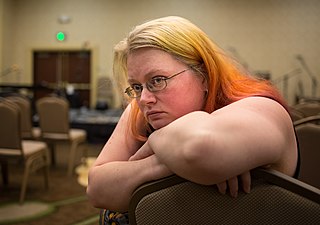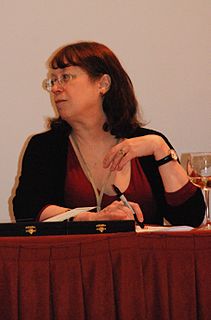A Quote by David Wong
That ability to see the right choice, but not until several hours have passed since making the wrong one? That's what makes a person a dumbass, folks.
Related Quotes
Every life has a watershed moment, an instant when you realize you're about to make a choice that will define everything else you ever do, and that if you choose wrong, there may not be that many things left to choose. Sometimes the wrong choice is the only one that lets you face the end with dignity, grace, and the awareness that you're doing the right thing. I'm not sure we can recognize those moments until they've passed us.
Instead of making others right or wrong, or bottling up right and wrong in ourselves, there's a middle way, a very powerful middle way...... Could we have no agenda when we walk into a room with another person, not know what to say, not make that person wrong or right? Could we see, hear, feel other people as they really are? It is powerful to practice this way..... true communication can happen only in that open space.
I have no way of knowing whether or not you married the wrong person. But I do know that if you treat the wrong person like the right person, you could well end up having married the right person after all. It is far more important to BE the right kind of person than it is to marry the right person.
Don’t do what you know on a gut level to be the wrong thing to doI don’t think there’s a single dumbass thing I’ve done in my adult life that I didn’t know was a dumbass thing to do while I was doing it. Even when I justified it to myself—as I did every damn time—the truest part of me knew I was doing the wrong thing. Always. As the years pass, I’m learning how to better trust my gut and not do the wrong thing, but every so often I get a harsh reminder that I’ve still got work to do.
Once digital came, I could see my images instantly right there on the camera. I think that makes you a better photographer because you can see right there if your subject's eyes are closed or if you exposed it wrong and if it's too bright or dark. You can fix it right here. With film, you wouldn't know until you got the prints back if something was messed up, and then there was nothing you could do. That was a huge advantage.
When I got the script to this movie, The Good Girl, I read it in an hour. The writer, Mike White, has an ability to create characters that are so creepy and dysfunctional and human, with this duality that makes people feel empathy for them at the same time. My first thought was 'Was this sent to the right person?' I called my agent. 'Are they sure? Let's say yes before they realize they've sent it to the wrong person!'
There's a difference between being ignorant and being stupid... For me, an ignorant person is someone who makes the wrong decision or a bad choice because he or she does not have the proper facts. If you give that person the facts and the proper information you have alleviated that ignorance, and they make the right decision.
Now I must live with the consequences of the choice I made. And I will not call it the wrong choice. That would be foolish and pointless. That choice led me to everything that has happened since, including this very moment, and the choices I make today or tomorrow or next week will lead me to the next and next present moments in my life. It is all a journey, Miss Jewell. I have come to understand that that is what life is all about-a journey and the courage and energy always to take the next step and the next without judgement about what was right and what was wrong.
When the psychiatrist approves of a person's actions, he judges that person to have acted with "free choice"; when he disapproves,he judges him to have acted without "free choice." It is small wonder that people find "free choice" a confusing idea: "free choice" appears to refer to what the person being judged (often called the "patient") does, whereas it is actually what the person making the judgment (often a psychiatrist or other mental health worker) thinks.






































